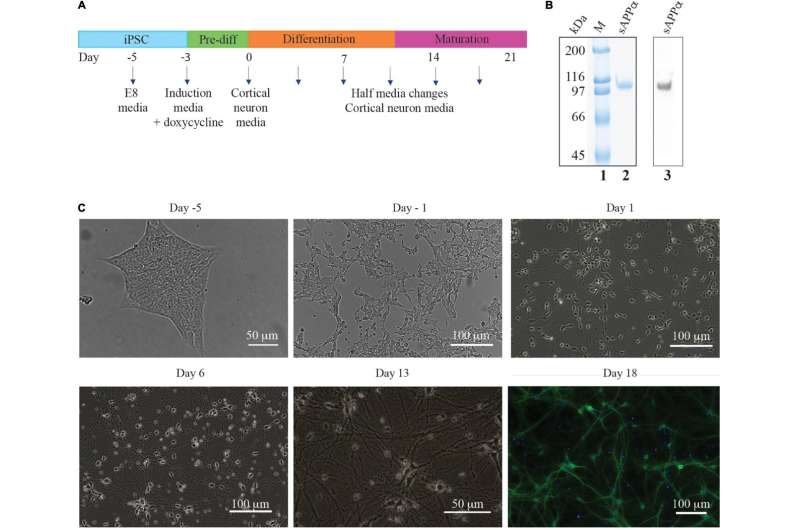Significant step on path to developing Alzheimer's therapy

A brain protein with high potential to delay or reverse the onset of Alzheimer's disease has been exploited by University of Otago researchers.
Co‑author of the study, Emeritus Professor Warren Tate, of the Department of Biochemistry, says there are currently no effective therapies to treat Alzheimer's, but the new research has found a neuroprotective brain protein that could change that.
"After decades of intense international research that, so far, have disappointingly failed to come up with ways to control dementia, this is a promising indication that a pathway to future success might be finally emerging," he says.
In the study, published in Frontiers in Neuroscience, the researchers found a particular brain protein changed the gene expression and protein profile of the human neuron in pathways linked to enhancing learning and memory.
"It was surprising that this natural therapeutic protein alone was able bring about so many changes in the human neuron to mechanisms of memory enhancement, nerve cell proliferation, modification or protection. The human brain protein sets off a cascade of important events for regulating the nerve cell in its important neurological functions," Professor Tate says.
The researchers used human neurons in culture as a model system. This enabled, with state-of-the-art analytical technologies, for the global molecular changes occurring in the human cells to be examined when they were exposed to the promising therapeutic protein.
"Understanding how the protein affects the human neuron is a significant step towards harnessing it for a therapy against the memory loss seen in the dementia of Alzheimer's disease."
While it is too early to talk about its value for clinical use, Professor Tate says the team of collaborating Alzheimer's researchers at Otago are now investigating how this promising protein, or small derivatives of it, could be delivered to the brain and thereby be used as a therapy.
More information: Katie Peppercorn et al, Secreted Amyloid Precursor Protein Alpha, a Neuroprotective Protein in the Brain Has Widespread Effects on the Transcriptome and Proteome of Human Inducible Pluripotent Stem Cell-Derived Glutamatergic Neurons Related to Memory Mechanisms, Frontiers in Neuroscience (2022). DOI: 10.3389/fnins.2022.858524
















